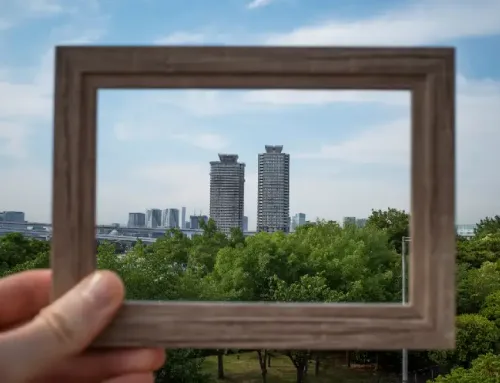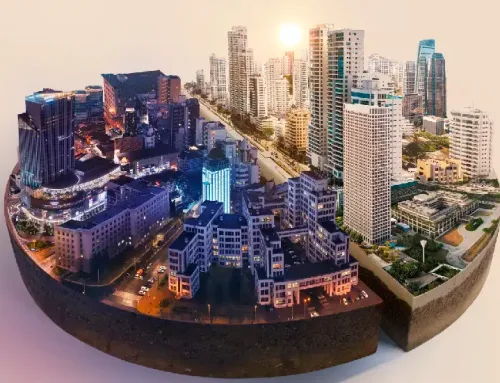In bustling regions like the UAE, the importance of providing accommodation to employees goes far beyond the basics of a roof and walls. It’s about creating spaces where people feel at ease, almost like a second home. In areas like Abu Dhabi and Dubai, this aspect of employee welfare is not just a perk; it’s essential. Imagine coming back to a place where you can kick off your shoes, cook a meal, or just relax – that’s what quality accommodation should offer. It’s all about those small comforts that collectively make a big impact on someone’s life. This guide sheds light on the significance of basic accommodation facilities and their crucial role in addressing staff and labour welfare. It also provides an overview of essential facilities. These elements create a living space and a nurturing environment supporting its residents.
Living Spaces: Balancing Comfort and Privacy
When discussing places like staff and labour accommodation in Abu Dhabi, the conversation shifts from providing shelter to creating a sense of home. It’s about striking the right balance: ensuring each room is a safe haven and a personal retreat where workers can relax. In settings like labour camps in Dubai, this means paying close attention to personal space and privacy, making sure everyone has their little corner of comfort and security. After all, a well-rested and content employee is key to a thriving workplace. Adding to this, the importance of adequate shelter and accommodation goes beyond mere infrastructure; it involves creating a space that resonates with warmth and safety. This includes thoughtful layouts that maximize space, allowing for community interaction and personal solitude. The aim is to ensure every individual feels secure and valued, enhancing their overall quality of life.
Sanitary and Hygiene Facilities: Upholding Standards
The standard of sanitary and hygiene facilities in staff accommodations plays a crucial role in maintaining health and well-being. Adequate bathroom and toilet facilities and strict cleaning and maintenance protocols are essential, especially in densely populated accommodations like UAE labour camps. Ensuring these facilities are adequate and well-maintained is a key aspect of upholding hygiene standards. Regular and thorough cleaning and prompt maintenance help prevent the spread of illness and ensure a healthy living environment. Additionally, promoting hygienic practices among residents is equally important. This could involve educational campaigns or providing easily accessible hygiene products, contributing to a cleanliness and health awareness culture.
Water Supply: Ensuring Reliability and Quality
When discussing essentials in places like labour camps in Dubai, having access to water that’s not just there but also safe to drink is huge. Think about it – water is like the lifeblood of any community, and in these settings, ensuring its quality and potability isn’t just good practice; it’s critical for everyone’s health. And let’s not forget the importance of water conservation. In areas where resources can be stretched thin, teaching and implementing water-saving practices go a long way in keeping the community sustainable and healthy. It’s all about being mindful of how we use water and making sure what we have is safe, and it goes a long way.
Waste Disposal Systems: Keeping Environments Clean
Efficient waste disposal systems play a crucial role in maintaining a clean and healthy environment, particularly in areas with a high density of staff accommodation in Dubai. Having a robust system for efficient garbage collection and disposal is essential, not just for cleanliness but also for overall health. Furthermore, promoting recycling practices is environmentally responsible and fosters a sense of community involvement in sustainability efforts. Keeping the surroundings clean and tidy is not just about aesthetics; it’s about creating a living space that’s pleasant, healthy, and conducive to well-being for everyone. Focusing on these aspects contributes significantly to maintaining high living standards in communal accommodations.
Temperature Regulation: Adapting to Climate Needs
Effective temperature regulation in accommodations is essential in regions like the UAE, where weather conditions can be quite extreme. It’s about more than just heating or air conditioning; it involves thoughtful, climate-appropriate design that ensures a comfortable living environment throughout the year. This includes protection against extreme heat and cold, vital in such climates. Proper ventilation also plays a key role, helping to maintain comfortable and healthy indoor air quality. By incorporating these elements into the design and maintenance of accommodations, we can provide a consistently comfortable and livable space, regardless of the outdoor conditions.
Safety Measures: A Top Priority
In staff accommodations, especially where many workers live together, nailing down basic safety protocols is a no-brainer. It’s not just about having rules; it’s about ensuring everyone knows what to do if things go south. That’s where emergency response plans come into play. They’re like a game plan for those ‘just in case’ moments; being prepared can make a difference. But here’s the kicker: none matters unless everyone’s on the same page. That’s why implementing safety training programs is so crucial. It’s all about giving everyone the know-how and confidence to handle emergencies. After all, when it comes to safety, a little training goes a long way in keeping the whole community safe and sound.
Protection from Environmental Impacts
When managing staff accommodations, one big thing we’ve got to focus on is mitigating environmental hazards. It’s about looking out for what Mother Nature might throw our way and being ready for it. And let’s be honest, ensuring everyone’s safety becomes even more important when the weather decides to go all out. That’s where ensuring safety during inclement weather comes in. It’s not just about battening down the hatches; it’s about having plans and systems everyone knows and can follow. Plus, in places that have their unique environmental challenges, having site-specific safety measures is key. It’s like tailoring your safety gear to fit the specific risks of your area. That way, we’re not caught off guard, whether it’s a surprise storm or some other kind of environmental curveball.
Natural Hazard Preparedness
In managing staff accommodations, preparing for natural disasters takes the front seat. It’s not just about having a plan on paper; it’s about ensuring everyone there knows the drill. This is where emergency preparedness for natural disasters comes into play. You’ve got to have solid evacuation plans and procedures in place, and more importantly, everyone needs to be on board with them. It’s not enough to tell staff what to do; we need to ensure they get it. This means regular training and drills to make sure the information sticks. It’s about creating a culture where everyone feels prepared and confident in their ability to respond if a disaster strikes.
Cooking and Dining Facilities: Promoting Health and Safety
When it comes to taking care of employees, one key element is ensuring they have good places to cook and eat. We’re talking about more than just a room with a stove – it’s about having adequate kitchen spaces where people can comfortably prepare their meals. And it’s not just the space; the cooking equipment and facilities need to be up to snuff, too – think safety first, always. Plus, ensuring everyone has access to nutritious food is super important. It’s not just about filling bellies but providing food that keeps everyone healthy and energized. It makes a huge difference when employees know they have a place to whip up a healthy meal or grab something good to eat. It’s one of those things that really makes a place feel like home.
Storage Facilities: Balancing Security and Accessibility
In staff accommodations, having secure and easily accessible storage solutions is fundamental to creating a comfortable living environment. It’s important to offer secure storage for personal belongings, where employees can feel confident that their items are safe. Equally important is ensuring that these storage facilities are well-organized and easily accessible. This helps maintain a sense of order and efficiency, especially when storing tools and work equipment. Adequate space for these items contributes to a more organized living space and ensures that everything needed for work is readily available. This approach to storage strikes a balance between security and convenience, which is essential in shared living environments.
Lighting Solutions: Ensuring Visibility and Safety
Getting the lighting right in staff accommodations is key. It’s not just about being able to see where you’re going; it’s about creating an environment that feels safe and comfortable. Having enough natural light during the day makes a huge difference – it just brings a certain liveliness to the place. Then, when the sun sets, it’s all about having enough artificial lighting, especially in common areas and along pathways. This isn’t just for convenience; it’s a big part of keeping everyone safe. Well-lit environments help prevent accidents and make everyone feel more secure, especially at night. It might not always be at the forefront of our minds, but good lighting can transform a space, making it feel more welcoming and secure.
Recreational Spaces: Supporting Well-being
Creating spaces dedicated to relaxation and recreation is an integral part of enhancing the living experience for employees. These areas serve as a haven for unwinding and engaging in leisure activities, vital for mental and emotional well-being. It’s not just about providing a break from the work environment; it’s about fostering a sense of community. Encouraging social interaction in these spaces can significantly build strong, supportive employee relationships. Such facilities offer a respite from the daily grind and play a crucial role in promoting a healthy work-life balance. This approach to communal living helps nurture a more rounded and content workforce.
Educational and Skill Development Initiatives
When it comes to nurturing growth, giving access to educational resources and training and development programs for employees is definitely a game changer. It’s more than just the usual day-to-day work; it’s about inspiring them to acquire new skills and knowledge that bolster their personal and professional growth. Think of it as equipping them with an expanded set of tools for their toolbox. In environments where continuous learning is a key focus, initiatives like these are incredibly valuable. They’re not just about individual development; they help to foster a culture where learning and personal growth are embedded in the daily routine. This approach is beneficial not only for the employees, as it enhances their skills and knowledge but also brings fresh ideas and capabilities into the workplace, creating a positive impact for everyone involved.
When we think about what makes for quality staff and labour accommodation in Abu Dhabi, it’s clear it’s not just ticking off a checklist of basic needs. We’re talking about building an environment that looks after employees’ all-around well-being. This means not just focusing on the physical aspects like a roof and a bed but also considering how these spaces impact their mental and emotional health. Ensuring these accommodations are comfortable, safe, and conducive to a productive life is a big deal. The goal is to create spaces where people don’t just live but thrive. And that involves spotlighting welfare and ensuring that every essential facility contributes to a holistic living experience. It’s about seeing the bigger picture and understanding how each element makes life better for those who call these places home.






Leave A Comment